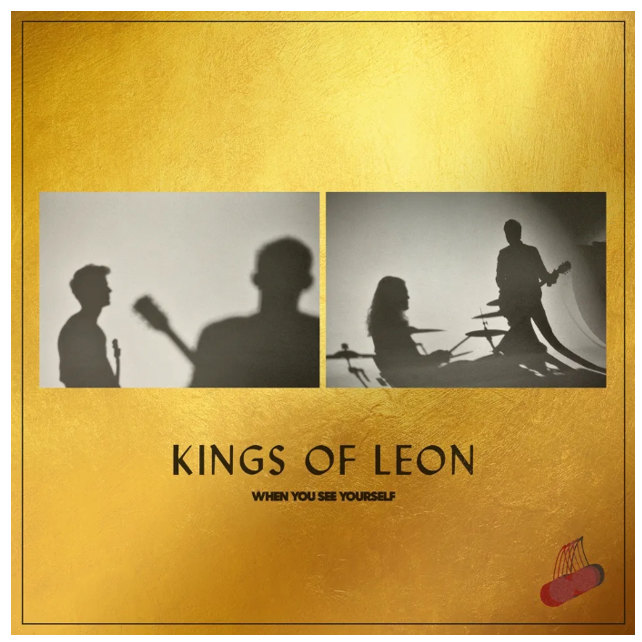NFTs Got the Music Industry Singing to a Web3 Beat
 |
| By Jurica Dujmovic |
The music industry, long accustomed to the familiar chords of streaming services and record labels, is experiencing a sonic boom with the introduction of a new instrument: non-fungible tokens.
This isn't just a passing fad, either. NFTs are poised to become a revolutionary force, fundamentally redefining how music is created, distributed and experienced.
The music industry's embrace of NFTs heralds a new era where artists gain unprecedented control over their work, fans enjoy closer connections to their favorite musicians and investors find fresh avenues for engagement and profit.
How? By democratizing the music industry.
No longer will artists be beholden to traditional gatekeepers like record labels and streaming platforms. By tokenizing their music, artists can directly sell their work to fans, retaining a greater share of the profits.
This model not only boosts artists' earnings but also grants them greater autonomy in managing their careers and creative output.
That’s nice for musicians. But for investors, this shift signifies a chance to support artists directly, potentially sharing in their success as their careers evolve.
The rapper Nas, for instance, offered ownership shares of streaming royalty rights to his single "Rare" as part of NFT packages on Royal.io.
These NFTs create a deeper bond between artists and their audience through exclusive access to new tracks and behind-the-scenes content that some offer.
For example, American rock band Kings of Leon took a significant step by releasing their album "When You See Yourself" as an NFT, which included a digital album download, artwork and a limited-edition physical Golden Eye vinyl featuring the band's eighth studio album.

And Avenged Sevenfold launched a collection of 10,000 NFTs called “Deathbat Clubs.” Depending on the token's rarity, fans owning a Deathbat could receive exclusive benefits like free lifetime concert tickets or spending a day with the band.
Finally, artists like Mike Shinoda of Linkin Park and Whitney Houston's estate have also entered the NFT space. Shinoda has been active in educating his audience about NFTs and exploring their potential, while among other drops, Houston's estate auctioned off an unreleased demo as an NFT, with proceeds going to charity.
Even if you’re not a big music fan, there are opportunities in these NFTs. They represent a chance to own a piece of music history or even enjoy VIP experiences, adding tangible value to their investments.
NFTs open up diverse revenue opportunities by tokenizing albums, singles or even concert tickets to create scarcity and drive demand, potentially increasing an NFT's value over time.
Moreover, artists can embed royalties into their NFTs, ensuring they earn a percentage of sales whenever their NFT changes hands on the secondary market. This feature not only benefits artists but also offers investors the prospect of recurring revenue from reselling high-demand NFTs.
And the ability to trade NFTs on secondary markets introduces liquidity to music assets, allowing investors to buy and sell NFTs based on market trends, artist popularity and other factors.
This dynamic market can yield significant returns, especially for early investors in artists who later rise to fame.
However, like all investments, this comes with risks, and market volatility can impact the value of music NFTs.
The landscape of music NFTs is constantly evolving, with new trends emerging as artists and the industry innovate.
For instance, the concept of virtual concerts and performances is gaining traction. Artists could release NFT tickets granting access to exclusive virtual shows, blending the lines between digital and live performances.
YellowHeart, a web3 marketplace, has introduced an NFT ticketing metaverse to help artists and fans avoid common ticketing issues like high prices and fraud.
Tokenproof offers a platform for token-gated access to a variety of online and in-person events, broadening the scope of what NFT tickets can offer beyond just event access.
Coachella experimented with NFTs to offer memorabilia and lifetime passes, while the Afterparty festival in Las Vegas issued 1,500 NFTs granting exclusive access to their event. These festivals are paving the way for how large-scale events can leverage NFT technology to enhance the fan experience.
As this segment of the NFT market grows, so too does its potential for significant returns. However, navigating this space requires a nuanced understanding and a strategic approach.
The NFT market, much like the broader cryptocurrency market, is known for its volatility. Prices can fluctuate wildly based on a range of factors — from general market trends to the actions of a single influential individual. Understanding the factors that can influence NFT valuations is crucial.
Also crucial is understanding the legal and regulatory frameworks — copyright, resale rights, potential tax implications, etc. — that are beginning to take shape around NFTs as the sector matures.
This means not just following market trends but also understanding the artistic value, rarity and potential cultural significance of a music NFT.
One of the key strategies for mitigating risk in any investment portfolio is diversification, and the same holds true in the realm of NFTs. By spreading investments across various artists, genres and types of NFTs, investors can protect themselves against significant losses should one investment fail to perform as expected.
This diversification can include a mix of established artists and emerging talents, different music genres and various types of NFT offerings — e.g., exclusive access tokens, digital merchandise or unique experiences.
This type of due diligence includes researching the artist's background, understanding the terms and conditions of the NFT and assessing the potential market demand for the NFT. The unique nature of each NFT, coupled with the nascent state of the market, makes this research all the more critical.
Additionally, staying informed about the latest trends, legal developments and technological advancements is crucial for making educated investment decisions. This can include monitoring NFT marketplaces, following thought leaders in the space and keeping an eye on legal and regulatory updates that could impact the market.
As the music industry continues to harmonize with blockchain technology, stakeholders must tune their strategies to the flux of this emerging market, balancing passion with prudence and creativity with critical analysis.
That's precisely why engaging with expert analysis and reviews is crucial in navigating this terrain. Keeping abreast of developments through reputable sources, such as our Weiss Crypto Daily issues, equips you with the necessary insights and foresight to make informed decisions.
Best,
Jurica Dujmovic
P.S. NFTs are one creative avenue to boosting your portfolio performance. In fact, crypto is full of out-of-the-box ways to target outsized profit opportunities. But it isn’t the only way. Early investment opportunities in the traditional finance market can also offer opportunities unlike what you can find anywhere else.
Weiss Ratings’ Chris Graebe is an early stage investing expert. He and our team use our reams of data, technical know-how and models to pinpoint the best possible new private equity or crowdfunding deal there is each quarter.
To learn more about how Chris targets these opportunities and his favorite new private deal — with a private company that’s looking to transform an industry Americans spend $500 BILLION per year on — I suggest you watch his latest presentation.
Hurry, though. It’ll be taken offline soon.

